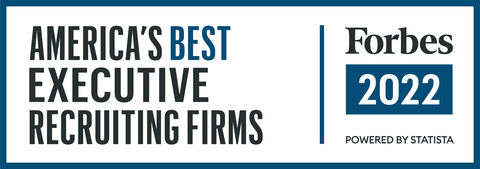Talent will get you in the door, but
character will keep you in the room.
Study Highlights The High Cost Of Private Equity Firms’ Retail Buyouts: 1.3 Million Jobs
Andria Cheng Senior Contributor Retail

Amazon may be the retail industry’s go-to scapegoat, blamed for its various woes, but a new study finds another culprit behind store closings, bankruptcies and liquidations at retailers from Sears and Toys “R” Us to Payless ShoeSource and RadioShack: private equity firms.
Nearly 600,000 jobs at U.S. retailers owned by private equity firms and hedge funds have been lost in the past decade, according to a study released this week by the Center for Popular Democracy and other groups. Add indirect job losses at retail suppliers like toymakers Mattel and Hasbro, and that’s another 728,000 jobs lost.
“Wall Street’s gamble on retail has led to more than 1.3 million job losses in total,” the study says.
Since 2012, 10 of the 14 largest retail bankruptcies, which included The Sports Authority and A&P supermarket chain’s parent, involved private equity owners, and those companies are twice as likely to go bankrupt as public companies, the study found. Among retailers that filed for Chapter 11 bankruptcy in 2016 and 2017, two-thirds were backed by private-equity funds.
The stakes are high: With private equity firms and hedge funds having bought over 80 major retailers in the past 10 years, the chains they own employ more than 1 million of the 15.8 million U.S. retail workers nationwide, according to the study. About 70% of store closings so far this year came from private-equity-owned retailers, including J. Crew and Charlotte Russe, the study says.
Why? Private equity firms have often financed their retail pursuits through leveraged buyouts that end up saddling retailers with high debt and interest that retailers themselves are on the hook to pay. That leaves them with little breathing room to free capital for other uses.
For example, Toys “R” Us, despite generating steady sales—$11.1 billion in 2017 vs. $11.2 billion in the year before its 2005 sale to a private equity group–saw 97% of its operating income going to pay debt interest by 2007, according to the study.
That left it “unable to upgrade technology or evolve its business model” to better compete with the likes of Amazon, the study says.
Retailers are attractive targets for private equity firms and hedge funds partly because they often own some or all of their store property, and the real estate assets can help secure more debt, the study says.
Private equity firms will also sell some of these real estate assets and require retailers to lease back the same buildings they had owned, the study said. It pointed to the example of Sears having to pay rent on some stores it previously owned to a real estate investment trust created by Eddie Lampert, Sears’ chairman and the founder of hedge fund ESL Investments, which engineered the 2005 merger of Sears and Kmart. (Lampert earlier this year won court approval to take Sears out of bankruptcy.)
Retailers over the past three years have commanded one of the highest default rates among various U.S. industries, according to a February report by rating agency Moody’s. The pressure is still on as a combined $12 billion in debt will mature through 2021. Weaker and smaller retailers that are saddled with leveraged debt that leave them “less financially flexible” will feed default rates, according to Moody’s.
In another warning sign, among retail and apparel issuers with ratings of B3 and below, 26 of the 34 are leveraged buyout transactions, Moody’s says.
“A large number are vulnerable to liquidity deterioration and elevated default risk in a cyclical downturn,” Moody’s said.



